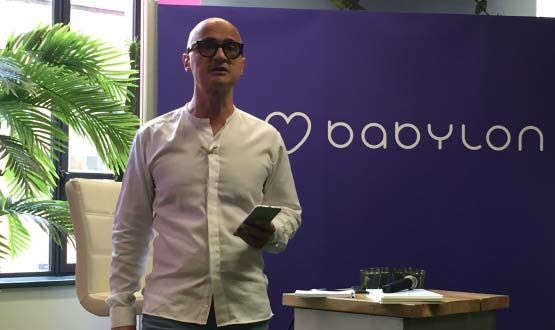A chatbot will now answer NHS 111 inquiries from more than a million Londoners as the health system looks for new ways to manage the growing health burden.
NHS England has announced a new deal between health app company Babylon Health and North Central London CCGs, which will be testing an “NHS 111 powered by Babylon”.
The app is essentially an chatbot drive by clinically-based algorithms that will triage patients without human intervention based on reported symptoms, a process that NHS England claims will take as little as two minutes.
Based on the symptoms and its own algorithms, the app could refer the patient to hospital or recommend a GP appointment the next day.
In a statement, NHS England said: “The app will provide an alternative mechanism of accessing integrated urgent care and connecting patients to clinicians, and will aim to reduce pressure on the NHS during the busy winter period and beyond.”
“It will tell people where to go and who to see, as close to their home as possible, so they can make the right choices.”
However, doctors have already expressed concerns about the reliance on algorithms and self-reported symptoms for determining the severity of a person’s illness.
Dr Chaand Nagpaul, the British Medical Association GP committee chairman, told the Guardian the app would rely “slavishly” on algorithms and could not replace the judgement of trained clinicians.
While this is the first-time NHS 111 has relied solely on an AI to field patient inquiries, non-clinical call staff already rely on computer algorithms to make triage decisions.
This had led to widespread criticism, with GPs calling for the “shipwreck” service to be scrapped entirely in 2015, claiming it was pumping up demand unnecessarily by being too risk adverse.
The London pilot is being run through London Central and West Unscheduled Care Collaborative (LCW), a GP-led not-for-profit organisation that already runs the local NHS 111 service. It will cover the boroughs of Camden, Islington, Enfield and Barnet.
Starting this month, it will run for six months, although patients living in the area will still be able to use the NHS 111 telephone service.
Digital Health News understands it is one of four pilots planned this year to test how artificial intelligence can be used to ease pressure on NHS 111, a service that receives about 15 million calls a year.
LCW chief operating officer Adam Duncan said the organisation would conduct a “robust” assessment of the apps value in improving the NHS 111 service.
“The use of the app could also reduce the demand on NHS 111 during the most busy periods, whilst retaining the high quality and accessible service.”
Babylon is chiefly known as a subscription based remote GP consultation service which provides video consultations through your phone for a monthly fee or a one-off payment.
However, in June last year the company launched a AI triage tool, likely to be the model for the new NHS 111 chatbot app, pitting it against real clinicians in a demonstration.
During the trial, the AI tool usually gave different, and more cautious, advice than the clinician.
Babylon chief executive Ali Parsa said the pilot would help put “accessible healthcare into the hands of everyone”.
“We should all be proud that our NHS is now becoming a pioneer in adopting cutting edge technology to deliver a timely and accurate digital triage service.”
The pilots come after health secretary Jeremy Hunt announced an expansion of the NHS 111 service to include a new online “triage service”, for less serious health problems, in September last year.
An online NHS 111 triage service has been announced by the government before, most recently in 2015.

